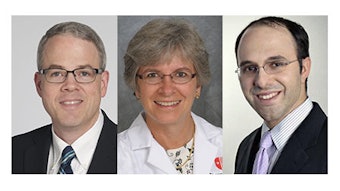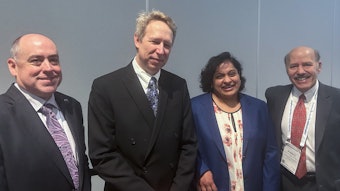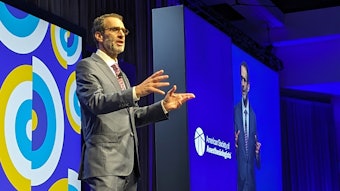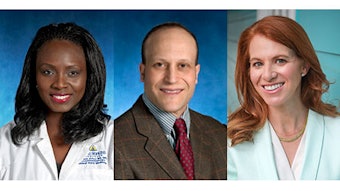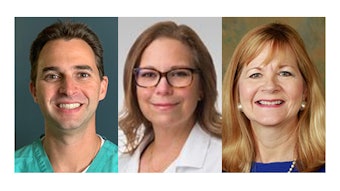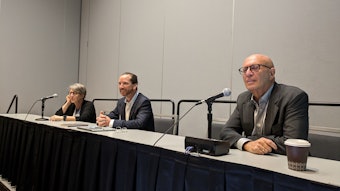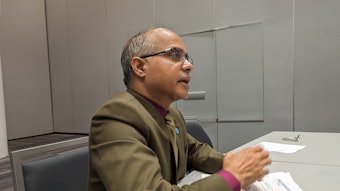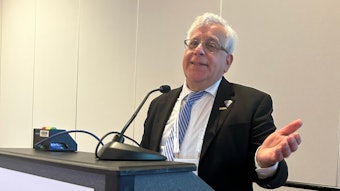Limiting the risk of morbidity in the frail
Combining assessment, education, and shared decision-making.
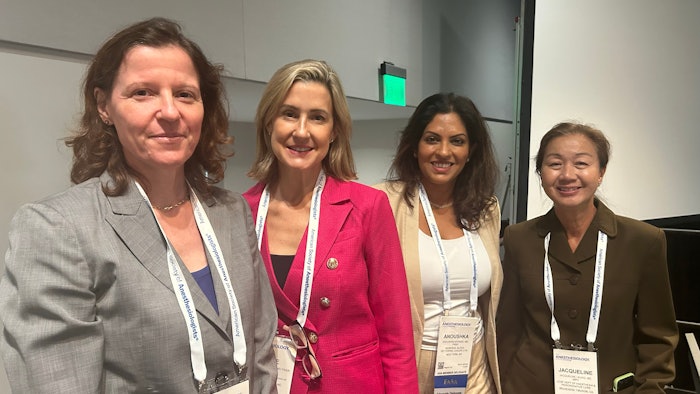
The level of frailty and the cognitive and emotional state of an aging patient can directly impact surgical outcomes and help to reduce delirium significantly. Four panelists explored emerging studies, the impact of dementia, and cognitive screening tests in 2023’s panel, “Perioperative Management of the Aging Patient: A Practical Guide to Frailty, Cognition and Shared Decision-Making.”
Angela F. Edwards, MD, FASA, Associate Professor of Anesthesiology and Section Head for Perioperative Medicine at Wake Forest University in Winston-Salem, North Carolina, said you must look for frailty in order to find it.
“The eyeball test is only accurate about 40% of the time,” she said.
She defined frailty as a “multidimensional syndrome resulting from accumulation of age and disease-related deficits, resulting in loss of ‘reserve.’”
“Older people with frailty are more likely to die or experience new patient-reported disability after surgery,” Dr. Edwards said.
Contributors to frailty include physical performance, cognition, malnutrition, and mental health, she said.
Contrasting delirium and dementia, Sascha S. Beutler, MD, PhD, Program Director at the Department of Anesthesiology at Brigham and Women’s Hospital, Harvard Medical School in Boston, Massachusetts, pointed to the need to assess the baseline brain function prior to surgery and encouraged pre-, intra- and postoperative care to mitigate delirium in seniors. She referred to the geriatric five M’s framework of mind, mobility, multicomplexity, medications, and matters most to understand the patient’s status through the process.
“If dementia is present preop, the patient has a higher postoperative risk for complications, increased length of stay, and mortality,” she said. She also said dementia is the strongest risk factor for postoperative delirium.
She described postoperative delirium as an “acute brain failure” that can have cascading deleterious effects, such as prolonged hospital stay, postoperative complications, reduced cognitive function, and even death. The five major risk factors for postoperative delirium, she said, are 65-plus years of age, having chronic cognitive decline, poor eyesight or hearing, severe illness, and presence of an infection.
Besides identifying risk factors before surgery, she advised clinicians to educate the patient and family, complete a comprehensive geriatric assessment, optimize hearing and vision, and conduct cognitive “prehabilitation,” a step that is still too early to fully quantify. It consists of one-hour cognitive exercises, such as videogaming, for 10 consecutive days prior to surgery.
Jacqueline M. Leung, MD, MPH, Director of the Perioperative Medicine Research Group at the University of California, San Francisco, explored cognitive screening tests as part of the preoperative assessment. She said anything laborious or time-consuming likely would not be done by the medical team because most preoperative instructions are conducted via phone.
In searching for an easy and quick test, she evaluated six cognitive screening tools, such as those requiring the patient to remember a series of items or to list as many animals as possible in a minute. Of the tests, she pointed to the Mini-Cog, with its three-item recall and clock drawing task.
Anoushka M. Afonso, MD, PhD, FASA, Director of Enhanced Recovery Programs at Memorial Sloan Kettering Cancer Center, wrapped up the session by emphasizing the importance of communicating effectively with the patient.
“Shared decision-making is a key concept, a process whereby doctors and patients come together in a collaborative fashion. It is very different from the old way, where the doctor says what the decision will be,” she said.
Dr. Afonso recommended clinicians use the REMAP technique and encouraged it to even be taught in medical school. When communicating with the patient, it consists of:
- Reframing why the status quo isn't working
- Expecting emotion and responding with empathy
- Mapping what is important
- Aligning with the patient’s values
- Providing a plan that matches the patient’s expressed values.
She pointed to studies showing patients of any age respond better to being part of the process, rather than being left out of it.
